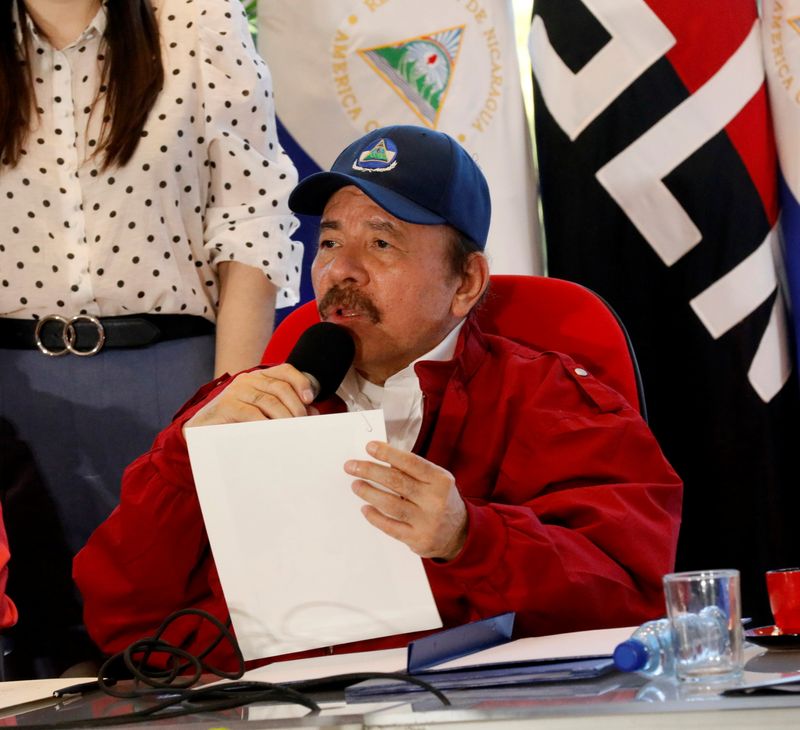By Patricia Zengerle and Matt Spetalnick
WASHINGTON (Reuters) -U.S. lawmakers on Wednesday approved legislation calling for more sanctions and other punitive measures to ratchet up pressure on Nicaragua's President Daniel Ortega just days before an election there that Washington has denounced as a sham.
The U.S. House of Representatives passed the bill 387-35 with strong bipartisan support following a similar vote by the Senate this week, sending it to President Joe Biden to sign into law.
Congressional action ahead of Sunday’s Nicaraguan election comes amid Ortega’s crackdown on opponents and critical media.
The arrests of dozens of opposition politicians, including presidential hopefuls, all but guarantees Ortega, a former Marxist guerrilla, will win a fourth consecutive term and tighten his grip on the Central American nation while facing increasing international isolation.
The bill calls for sanctions on Nicaraguans deemed responsible for unfair elections, increased coordination of such measures with the European Union and Canada and expanded U.S. oversight of international lending to Managua.
The White House did not immediately respond to a question of whether Biden would sign the legislation, which was introduced by Senator Bob Menendez, Democratic chairman of the Senate Foreign Relations Committee. But U.S. officials have made clear the president takes a favorable view of many of its provisions.
Known as the RENACER Act, it also requires U.S. government reports on alleged corruption by the Ortega family, human rights abuses by security forces and Russian activities in the country, including military sales.
In addition, the Biden administration is asked to conduct a formal review of Nicaragua’s participation in the Central America Free Trade Agreement, which gives preferential treatment to the region’s exports to the United States.
The Biden administration is already preparing new sanctions that could be levied in response to the election, U.S. officials told Reuters. This would add to sanctions and U.S. travel bans already imposed on dozens of officials.

Ortega said in June that sanctions would not deter him and his government was upholding the law by arresting people conspiring against him. He accused Washington in July of trying to undermine the elections.
Washington has already begun a review of Nicaragua’s membership in the CAFTA-DR trade accord, a senior State Department official told Reuters last week. But U.S. officials would face legal obstacles to any suspension of Nicaragua and are mindful this could hit its struggling economy and possibly spur further migration north to the U.S.-Mexico border.